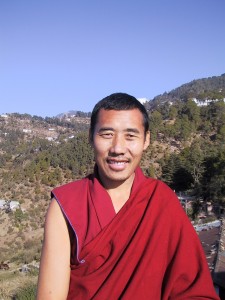
On Thursday morning just before Max Baucus was confirmed by the US Senate to be the next US Ambassador to the People’s Republic of China (PRC), President Obama addressed the annual National Prayer Breakfast. Obama recognized the National Prayer Breakfast as an opportunity to set aside labels of party and ideology. He used the opportunity to discuss the importance of religious freedom abroad. Obama said that freedom of religion is necessary for peace and human dignity.
Tibetans know the truth of those words all too well. In Tibet, Buddhism is strictly controlled by the Chinese government. After the destruction of almost every monastery, nunnery, and religious, historic or biographic text in Tibet in the first 25 years of Chinese rule the Chinese government still violently denies Tibetans religious freedom. Tibetan Buddhists are prevented from freely exercising their religious beliefs. Monks and nuns are subjected to Patriotic Education Campaigns, which require monks and nuns to denounce the Dalai Lama or be kicked out of their monasteries or nunneries. By February 1998, 3,993 monks and nuns were kicked out of their monasteries and nunneries. According to official Chinese figures 1,200 monks were expelled from monasteries near Lhasa.
Lay Tibetans are arrested and tortured for possessing photographs and recordings of the Dalai Lama, the spiritual leader of Tibetan Buddhism. The religious repression in Tibet has reached such a level that a considerable number of current or former monastics have committed self-immolations. Many called for freedom and the return of the Tibetan spiritual leader Dalai Lama to Tibet.
In this context, Obama’s words on freedom of religion in the People’s Republic of China were disappointing. He stated that the US does business with the PRC and US’ relationship with the PRC is important for the world. He also said that he tells the Chinese leadership that recognizing universal human rights is in their interest. However, if, as Obama said, promoting religious freedom is a key objective of US foreign policy, more must be done by the US to protect and promote religious freedom in the PRC. He cannot rely on the benefits of business with China to “trickle down” and benefit Tibetans or help them achieve human rights. In fact, Pope Francis, who Obama called inspirational, heavily criticized such an approach.
An important first step would be for President Obama to nominate a new ambassador at large for international religious freedom. This position has been empty since Suzan Johnson Cook stepped down in October 2013. He must also ensure that the Office of Religious Freedom has the support it needs at the State Department to promote and protect religious freedom internationally.
Nominating a new ambassador at large for religious freedom would also give president Obama an opportunity to work on an achievable, bipartisan goal with Congress. Protecting human rights, including religious freedom, in Tibet has traditionally been a non-partisan issue for Congress. In April 2012 the US Senate unanimously passed a bill calling upon the PRC to end its repressive politics in Tibet. On 25 July 2012, the US House of Representatives’ Foreign Affairs Committee heard Tibetans testify at a hearing on torture and human rights abuses in China.
President Obama should build upon the opportunity to set aside the partisan politics he recognized at the National Prayer Breakfast to work with Congress to promote and protect religious freedom in Tibet and elsewhere.
